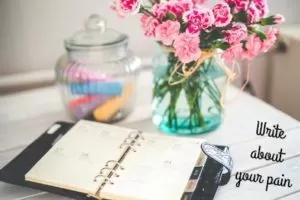Relationships can be wonderful, but they can also have tough times – conflicts. Ever wondered why clouds sometimes clash and make lightning? People, like nature, have clashes in their relationships, and that’s okay!
What really matters is how we handle these tough moments. Instead of avoiding conflicts, we should embrace them with open hearts and open minds.
Think of a garden with lots of different flowers. They each have their own colors and smells, yet they all make the garden beautiful together.
Just like that, relationships blossom when people appreciate each other’s uniqueness, respect each other’s thoughts, opinions, and perspectives, and appreciate each other for the little things.
Let’s get into this blog and figure out ways to deal with conflicts in a relationship.
Ways To Deal With Conflicts In A Relationship
1. The Art of Active Listening:
Let’s talk about listening carefully when someone shares their feelings or problems. Usually, we start thinking about what to say next while they talk. We all do it sometimes. But sometimes, we just want someone to really get us, right?
So, before you start talking, try this: ask questions like “Tell me more” or “What do you think could help?” This helps you understand their point of view. When people feel heard like this, they are more likely to work together to fix the problem.
2. Seek Common Ground:
We often hear people say, communication is the key to bridging conflicts and finding common ground in any relationship, and that’s so correct. All we need to do is listen empathetically and be honest while sharing our feelings.
Say, “I’d appreciate it if you help me understand your viewpoint better.” “How about we find a middle ground?” Explore shared values and goals: “What do we both want from this relationship?” Create a plan together: “How can we work towards a solution that satisfies both of us?” Remember, it’s about “we,” not “me vs. you.”
3. Timing is Everything:
Do you think you should water a plant when it’s already raining? No, right? Just like that timing is crucial in conflict resolution. Ask yourself if it’s the right time to talk. Sometimes, a little space works wonders.
Say something like, “I’d love to have this conversation, but could we wait until we’re both feeling a bit more relaxed?” Conversely, it’s crucial not to keep delaying crucial conversations. Ask, “Have we let this issue simmer for too long? When can we address it constructively?” It’s all about feeling the moment and moving together towards a resolution.
4. Embrace Vulnerability and Empathy:
It’s totally fine to show your real feelings to the person you love. Sometimes, conflicts happen because we’re not expressing how we truly feel or because we don’t understand each other’s feelings. So, don’t be afraid to share your emotions honestly. When you do, it builds trust and closeness in your relationship. It also encourages your partner to understand and care about your feelings.
And when your partner shares their feelings, be understanding in return. You can say things like, “I get why you feel that way,” or “I’m here for you, and we’ll work through this together.” This kind of openness and empathy makes your connection stronger and helps you both deal with conflicts better.
5. Agree to Disagree Respectfully:
You know we can’t resolve all conflicts with a clear-cut solution. And, it’s perfectly fine to agree to disagree. The key is to do it respectfully. Acknowledge that both you and your partner have different perspectives, and that’s what makes your relationship unique. It’s like a puzzle; each piece might be different, but together they create a beautiful picture.
Say something like, “I don’t agree with your perspective on this but I totally respect your decision.” Let’s find a way to coexist with our differences without letting them harm our relationship.” Accepting differences and being able to agree to disagree without holding any grudges can actually strengthen your relationship, showing that you respect each other’s outlooks.
Her approach integrates both mental and physical aspects for a holistic perspective on well-being.
Conclusion
Remember, relationships are a work in progress, and conflicts are part of the journey. Embrace them with open hearts and open minds, and you’ll find that they can be stepping stones toward a deeper, more fulfilling connection.
How about starting with a FREE discovery call with Jacquline Kane, who specializes in navigating the complexities of human emotions and relationships?
Your journey towards a harmonious, loving relationship is worth every step.





